Let's talk 2e! Conference for Educators
Educating 2e: Understanding & Addressing 2e Needs
25 Expert Sessions Available Immediately
$120 $197
Credits available at an additional charge.
About this educators' conference
Conference sessions address these four strands:
- Understanding 2e,
- Classroom Strategies,
- Cultural Diversity, and
- Clinical Considerations.
This conference is for:
- GT/gifted teachers
- Teachers of twice-exceptional learners
- Resource teachers
- Professional School Counselors
- GT central office staff
- Special education central office staff
- Support Services Central office staff
- School psychologists
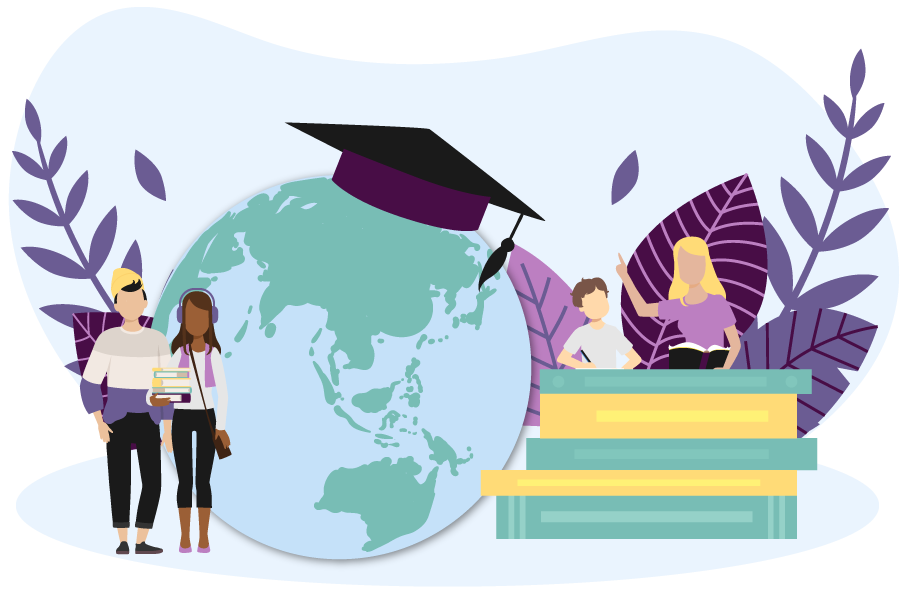
“If you have one 2e child in your class the information and strategies from this conference will benefit that student and all the others!”
— Debbie Perhach, 2e/Autism Resource Teacher, Dept. of Special Education
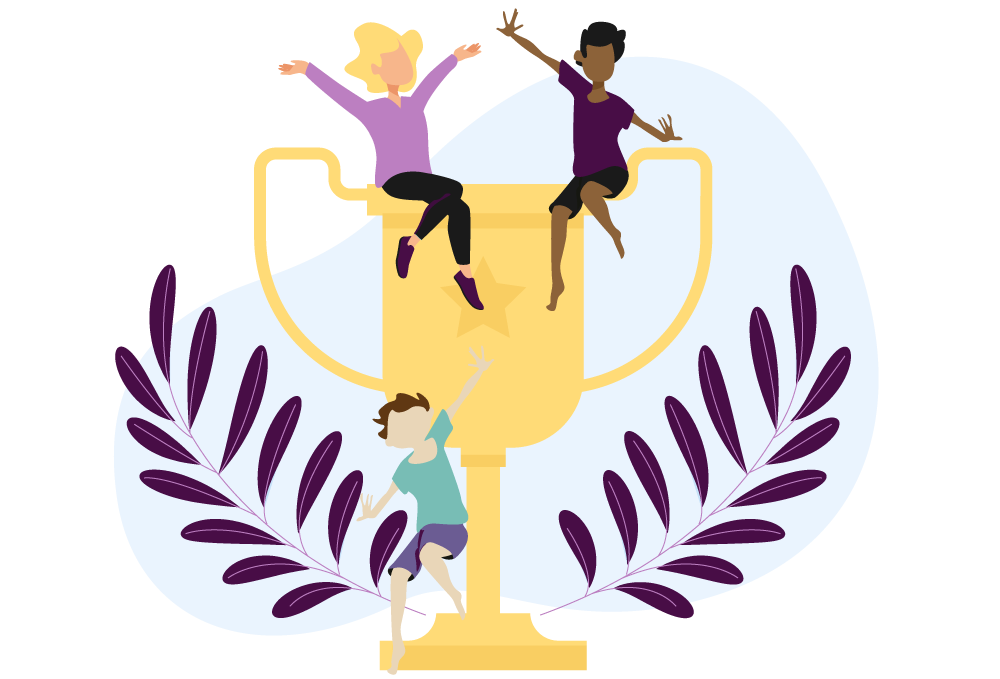
Here's what you get:
- 25 expert sessions
- Downloadable Conference Planner to set goals and record reflections
- Gifts from our speakers
- Certificate of Attendance: All participants receive a Certificate of Attendance from With Understanding Comes Calm, LLC.
- Badge and Certificate of Completion: Those who complete all 25 sessions will receive a Certificate of Completion, along with a badge they can display in emails or on their website.
- Opportunity to Earn Credits from the Bridges Graduate School for Cognitive Diversity, Maryland State Department of Education, Texas Education Agency
- Contact Hours from the University of Connecticut*
- Entry to our virtual Exhibitor Hall to find resources from: Education, Clinicians, Enrichment, Consultants and Associations
Educators are raving...
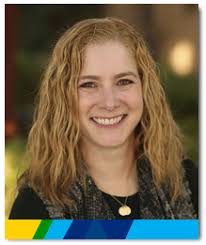
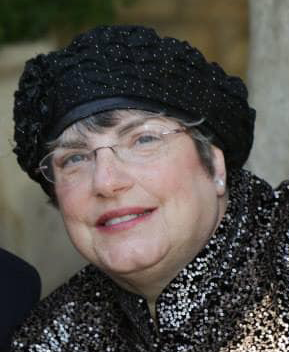
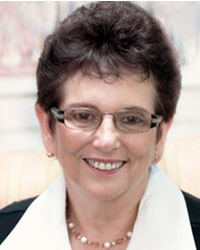
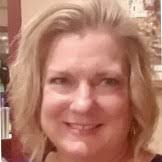
Meet our experts & learn about their presentations.
Learn how to reach and teach twice-exceptional and gifted children from these expert presentations:
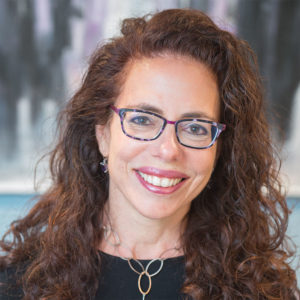
Julie Skolnick, M.A., J.D.
OPENING KEYNOTE: Understanding and Managing Transitions for Twice Exceptional Kids
Understanding 2e
Transitions are notoriously challenging for gifted and 2e people. Rigidity can be a 2e characteristic making transitions jarring. In this time of global transition, our 2e students need understanding and support more than ever. But if you are an adult who also struggles with black and white thinking, it’s extra hard to find empathy and creativity when you JUST WANT TO GET OUT THE DOOR! This session provides a lens into understanding why transitions can be so hard and strategies to support our 2e kids and selves as we struggle with expected and unexpected change.
Julie is the Founder of With Understanding Comes Calm, LLC, through which she passionately guides parents of gifted and distractible children, mentors 2e adults, trains teachers on how to understand and address 2e strengths and struggles.
Julie serves as Secretary to the Maryland Superintendent’s Gifted and Talented Advisory Council and is an advisor for “The G Word” full feature film. Julie is the SENG (Supporting the Emotional Needs of the Gifted) Maryland liaison, a SENG Model Parent Group (SMPG) trained facilitator and on the Simultaneous Supports committee for the National Association for Gifted Children (NAGC). She is trained in the suite of tools “Putting the Person into Personalized Learning” through the 2e Center for Professional Development at Bridges Academy. Julie is also an invited member of the Gifted Homeschoolers Forum Professional Membership Committee.
A frequent speaker and prolific writer, Julie is also the mother of three twice exceptional children who keep her on her toes and uproariously laughing.
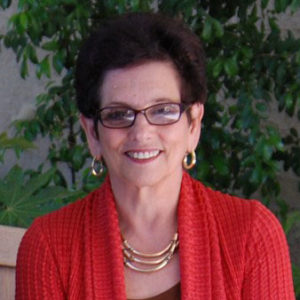
Susan Baum, Ph.D.
What me organized? It's a Matter of Style
Understanding 2e
2e kids have unique profiles that are influenced by their personality preferences. In this session you will learn how style influences, relationships, organizational skills, learning preferences, and expectations. In this session we will explore four kinds of personality preferences and what happens when we interact with those whose preferences or profiles are different from ours. Using the QPI (Quick Personality Indicator) we learn how to create environments and expectations that allow us to thrive and relate. Most important, you will gain insight into your own preferences and how that impacts your understandings of your 2e learner.
Susan Baum, Ph.D. is the Director of the 2e Center for Research and Professional Development at Bridges Academy, a school for twice exceptional and Provost of the Bridges Graduate School of Cognitive Diversity in Education. She is the author of many books and articles focusing on meeting the needs of special populations of gifted students including the award- winning 3rd edition o To be gifted and learning disabled. Her research and experience in the field of twice exceptional education have earned her much recognition: 2010 recipient of the Life Time Achievement Award granted by the Weinfeld Group, 2011 recipient of the Connecticut Association for the Gifted “Friend of the Gifted Award; the 2015 Distinguish Professional Alumni Award from the Neag School of Education; the Lifetime Achievement Award from AEGUS and the 2e Newsletter in 2017, and the Alexinia Baldwin Award from National Association for Gifted Students in 2019
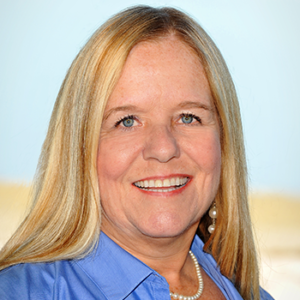
Dianne Allen, M.A., CAP, CET
The Way of the Sensitive - How Spiritual Giftedness Impacts Life Experiences
Understanding 2e
This session will explore spiritual gifted traits, experiences and potential impact on 2e children, adolescents and adults. We will discuss person experiences with Intuition, Indigo Children and how to harness these unique gifts in a productive manner.
Dianne A. Allen, MA, CAP, CET is a mentor for Visionary Leaders. A visionary herself, she takes over 4 decades of formal and informal education and blends it with technically eclectic skills, experience and intuition to offer unique, expansive individual and business mentoring to visionary leaders. Dianne hosts 2 podcasts, Someone Gets Me which focuses on inspiring visionary leaders who may feel stuck or misunderstood by interviewing visionaries who have crossed the chasm and are living their inspired vision. Meditations for Visionary Leaders podcast is a series of guided meditations. Published books include: How to Quit Anything in 5 Simple Steps, The Loneliness Cure – A Guide to Contentment, Daily Meditations for Visionary Leaders, Hope Realized – A Daily Meditation book for Personal Transformation and Healing and Where Do You Fit In? Currently, Dianne is working with visionary leaders internationally to help them bring their vision and personal legacy into reality. For more information: www.msdianneallen.com and www.visionsapplied.com
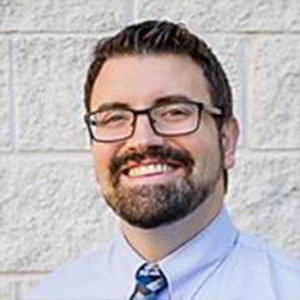
Matt Zakreski, Psy.D.
They're All Going to Find Out that I'm a Fraud! Combatting Impostor Syndrome in 2e Students
Understanding 2e
Impostor Syndrome is a psychological phenomenon that causes people to doubt their accomplishments and fear being “discovered” as a fraud. It is very common within the gifted/2e population and has seriously negative impacts. This session will explore the maintaining factors of this Syndrome and outline strategies to undo it.
Matthew Zakreski, PsyD is a high energy, creative clinical psychologist who utilizes an eclectic approach to meet the specific needs of his clients. He specializes in working with children and adolescents, as well as their families, in providing therapy and conducting psychological evaluations. He is proud to serve as a consultant to schools, a professor at the university level, and a researcher and author on his specialty, Giftedness. Dr. Zakreski is a member of Supporting the Emotional Needs of the Gifted (SENG), the National Association for Gifted Children (NAGC), and the New Jersey Association for Gifted Children (NJAGC). He is also a member of the Pennsylvania Association for Gifted Education (PAGE) Board of Directors. He is the founder and lead clinician at The Neurodiversity Collective.
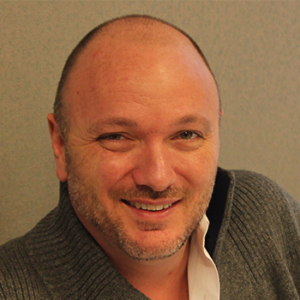
Matthew Fugate, Ph.D.
Understanding the Social-Emotional Needs of Twice-Exceptional Learners
Understanding 2e
This session focuses on the understanding of the unique social and emotional needs of twice exceptional students. Self-efficacy, self-concept, self-competency, and expectancy beliefs have been found to affect student motivation. Additionally, strong interpersonal relationships between teachers and students increases students’ motivation and sense of belonging in school, helping them to take on more challenging academic endeavors. Finally, increased academic motivation has also been tied to parental involvement and support. Participants will explore characteristics of students who are gifted with special needs, including their developmental traits, vulnerabilities, and diversity issues. Additionally, an introduction to current educational approaches and guidance will be discussed.
C. Matthew Fugate is assistant professor, Educational Psychology, and Assistant Chair of Urban Education at the University of Houston-Downtown (UHD). He received his doctorate in Gifted, Creative, and Talented Studies from Purdue University and his Masters from the University of Connecticut. Previously, Matthew worked as an elementary teacher, Gifted Coordinator, and Magnet Coordinator in the Houston Independent School District. His research interests include twice-exceptional students and students from underserved populations. Matthew has presented to audiences nationally and internationally on topics related to twice exceptionality, Total School Cluster Grouping, program development, and creativity. He is an active member of TAGT and NAGC and is the Associate Editor of Teaching for High Potential. Matthew is also the Co-Director for the UHD Call Me MiSTER Initiative, in partnership with Clemson University and the Houston Independent School district. This program is designed to recruit graduating high-school male students of color into the teaching profession.

Marc Smolowitz, Director, Producer
CLOSING KEYNOTE: Getting to Know You: Trauma, Empowerment, and Giftedness
Understanding 2e
While making THE G WORD documentary, it has become abundantly clear to filmmaker Marc Smolowitz that gifted, talented, and neurodiverse experience is peppered by traumatic narratives of all kinds. So much so, one cannot undertake a full contemplation of the “state-of-the-state” of gifted and talented education without embracing a deeper understanding of trauma from a psychological perspective. In this keynote, Smolowitz will chart his own personal and professional journey with trauma and demonstrate how filmmaking for him has been, in part, about embracing empowerment through storytelling and making trauma-informed work. The latter is a concept that has been at the heart of Smolowitz’s films over the arc of a 30-year career, with subject matters that include LGBTQ civil rights, the HIV/AIDS pandemic, PTSD, poverty, sexual abuse and more. Smolowitz will unpack these difficult themes and connect them directly to giftedness by using real-life examples that help attendees walk away with new perspectives that can be useful in school settings, home life, work-life, and civil society at large.
Marc Smolowitz is a multi-award winning independent filmmaker based in San Francisco. With three decades of experience in the film and media business, Smolowitz is a director, producer, and executive producer who has been significantly involved in 50+ successful independent films wearing many hats across the entertainment industry. The combined footprint of his works has touched 200+ film festivals and markets on 5 continents, yielding substantial worldwide sales to theatrical, television and VOD outlets, notable box office receipts, and numerous awards and nominations. His long list of credits includes films that have screened at top-tier festivals such as Sundance, Berlinale, Venice, Chicago, AFI Docs, IDFA, DOC NYC, CPH: DOX, Tokyo, Melbourne, Viennale, Krakow, Jerusalem, among others. His film company — 13th Gen — works with a dynamic range of independent film partners globally to oversee the financing, production, post-production, marketing, sales, and distribution efforts of a vibrant portfolio of films and filmmakers. Founded in 2009, the company is known widely for being active on some 10-15 concurrent projects, both independent and inside Hollywood, and it has successfully advanced Smolowitz’s career-long focus on powerful social issue films and filmmaking across all genres. In 2016, he received one of the prestigious IFP Fellowships to attend the Cannes Film Festival’s Producers Network and Marche du Film marking him as one of USA’s most influential independent film producers.
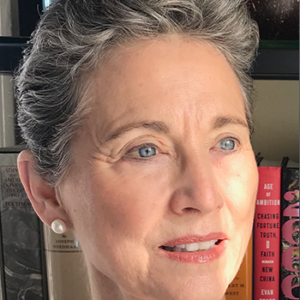
Robin Schader, Ph.D.
Conversations and Questions: Key to Parent/Teacher/Student Communication
Classroom Strategies
Communicating with parents of 2e students can be challenging. They may be defensive from past experiences and feel as though they need to “protect” their 2e child. Parents sometimes feel sidelined in their 2e child’s education journey. This session will discuss barriers to communication and the importance of collaboration. We will review a “conversation script,” and talk about strategies for successful parent teacher communication.
Robin Schader, Ph.D. has been active as a board member, trustee, and organizer of events and initiatives for various educational institutions, research centers, and professional associations, including Bridges Education Group in Studio City, CA. Having previously served as an assistant research professor at the Neag School of Education at the University of Connecticut, she received the 2020 Alumni Award for Outstanding Professional. Robin has published on topics such as giftedness, talent development, and twice-exceptionality. The National Association for Gifted Children (NAGC) named her as parent resource specialist, a role in which she supported parents and advocates in matching high-potential youth with appropriate educational opportunities, and in 2018, NAGC honored Susan Baum and Robin Schader with the Book of the Year Award for a volume they co-authored.Robin also was the founder and director of Music House, a nonprofit home-away-from-home in San Francisco for highly gifted young musicians from around the world.
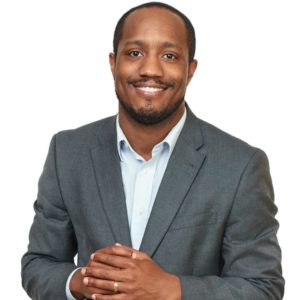
Colin Seale
Low Floor, High Ceiling: Concrete Strategies to Unlock Excellence in All Students
Classroom Strategies
Denying access to rigorous learning opportunities because students are “too low” is unacceptable. Open the door to increased gifted identification rates in underrepresented populations with practical strategies in this interactive workshop. Participants will leave equipped with content and grade-agnostic tools to raise the bar for students with sustainable differentiation strategies.
Colin Seale was born and raised in Brooklyn, New York, where his struggles gave birth to his passion for educational equity. Using his experience as a math teacher, later an attorney, and now a keynote speaker, contributor to Forbes and The 74, and author of Thinking Like a Lawyer: A Framework for Teaching Critical Thinking to All Students, Colin founded thinkLaw, an award-winning organization that helps educators close the critical thinking gap through powerful, practical instructional strategies and curricular resources.
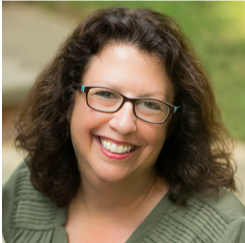
Joan Green, M.A. CCC-SLP
Technology to the Rescue: 10 Tech Treasures to Help 2E Students Thrive!
Classroom Strategies
As parents and educators, it’s overwhelming to keep up with the ever-changing world of accessibility features, browsers, apps, websites and devices. Joan’s got your back! She is always on the lookout for affordable everyday technologies to help others thrive in life. As an SLP and technology implementer, her mission is to help students, families and teachers learn more about what they may not realize exists to not only improve communication, literacy, learning,and cognitive challenges but to maximize success and happiness. Let’s reduce stress and help our kids thrive! Twice exceptional children deserve to be shown tech tools to nurture their talents and interests.
Joan Green received her undergraduate as well as graduate education at Northwestern University. After spending time working in hospitals, rehabilitation centers, schools and home care, she formed Innovative Speech Therapy in the Washington, DC area in 1992, so that she could provide top quality rehabilitative and intervention services using her unique approach combining cutting-edge technology with individualized action plans. She continues to prioritize her own learning by attending and presenting at workshops and conferences, networking with colleagues, and exploring emerging technologies. In addition to providing 1:1 therapy, professional development and online webinars and courses, Joan has published 4 books. Her most recent bestselling publication is titled, “Assistive Technology in Special Education, 3rd Edition: Resources to Support Literacy, Communication and Learning Differences.” Joan was born and raised in Buffalo, NY and lives in Potomac, MD. She is the proud mother of 4 wonderful young adults and two loving pups, Teddie and Cody.
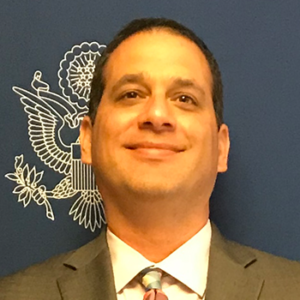
Joseph Olan, Ed.D.
Engaging 21st Century Learners
Classroom Strategies
Participants will be highly engaged in an experience that will surely give them insights, strategies, and evidence-based techniques that are effective in supporting a variety of learners and learning needs. This session will focus on proven supports that drive engagement and intrinsic motivation in learners. I addition, participants will see how findings in neuroscience in relation to cognition and learning support a culture of thinking and feeling. This session will conclude highlighting ways a culture of thinking and feeling in the home can systematically increase the level of engagement and/or intrinsic motivation of exceptional learners.
Joseph Olan has worked with educators, parents, and students in multiple school districts in Texas in his career. Mr. Olan has been a social studies teacher, mentor, dept. head, academic coach, academic dean, and has presented on numerous educational topics in many schools across Texas.
Mr. Olan traveled to The Republic of Singapore in 2015 for a semester to collaborate and present. Mr. Olan has since become an advocate for leveraging social-emotional competencies and practices in support of academic performance, College Career and Military Readiness, and Global competence. Mr. Olan has also been a panelist at three Global Teaching Dialogues sponsored by the U.S. Department. He recently presented at the Safe at Home Global Virtual Ed-Camp and conference. He is a proponent of fostering 21st century employability skills through a social-emotional learning (SEL) lens.
His educational philosophy is “Educating the Mind without Educating the Heart is no Education at all” – Aristotle.
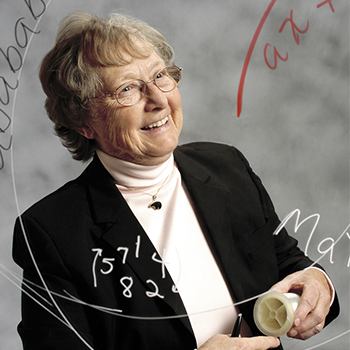
Rachel McAnallen, Ph.D.
This Isn't How We Did Math When I Went To School
Classroom Strategies
Adults often remember the know how not the know why. In this session, the presenter will share creative ways that parents and teachers can help their 2-E learners to understand the “know why” or conceptual knowledge of mathematics not just the “know how” or procedural knowledge of the mathematical algorithms.
Known simply as Ms. Math to children across the country, Dr. Rachel McAnallen has devoted her life to sharing the joy and beauty of mathematics with learners of all ages. A professional educator for more than 60 years, she travels the globe teaching her subject at every grade level. In addition to her experience in the classroom, Rachel has served as a department chair, a school board member, and a high school administrator. She claims the latter position is responsible for the majority of her grey hairs. She has a passion for teaching, reading fictional mystery novels, and mathematical modular origami, though not always in that order. Recently Rachel has co-authored with Carol Williams, children’s math books and teaching manuals that accompany the books. A life-long learner, Rachel approaches the world around her with a boundless curiosity and a playful sense of humor that is reflected in her teaching style. She believes that mathematics is a language to be spoken, a music to be heard, an art to be seen, and a dance to be performed.

Chris Wiebe, Ed.D., M.A.
Developing college- and career-readiness through an interest-based, student-driven educational model
Classroom Strategies
This session will explore the strides of a student-driven learning model — the Young Expert Program — to not only develop skills and knowledge in a student’s area of interest, but also to prepare students for college and future careers. The program model expands conversations about college readiness beyond high school requirements, grade point averages, and standardized test scores to show the importance of engaging students in self-driven, meaningful projects of their own design.
Chris Wiebe, Ed.D. is the high school division director at Bridges Academy. He also serves as managing editor for Bridges Media, publisher of 2eNews.com and Variations2e magazine, which provide information, perspectives, and resources about 2e education and neurodiversity. Chris’s doctoral dissertation explored the barriers that teachers’ beliefs about technology can pose for schools and districts pursuing technology integration policies. A paper based on this dissertation was a finalist for an American Educational Research Association (AERA) award in 2016 from the Technology as an Agent of Change, SIG. His other published works include a critical discourse analysis of diversity statements at public universities, and a piece that excavates neoliberal ties between national policymakers and major technology corporations. With a co-author, he wrote a chapter about institutional programming for twice-exceptional students, which was published by Oxford University Press.
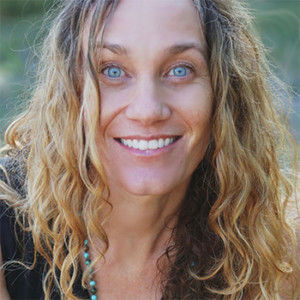
Kate Bachtel, Ed.D.
From Social to Sociopolitical Development for Achievement & Mental Health
Classroom Strategies
Twice-exceptional students born with social justice genes deserve preparation for the arduous nature of the changemaker journey. Today’s political reality can cause distress – it is not congruent with the peaceful society our youth dream of and yearn to co-create. Social skills teach youth to connect with others; sociopolitical development moves beyond connection to the ability to recognize and resist oppression and remedy inequities. Youth are inspired by leaders like Ruth Bader Ginsburg, but are not always taught the skills and strategies needed to realize positive change. When we push against an unjust system, it pushes back. In this session participants will be provided a research informed framework to better understand sociopolitical development, as well as strategies to support in the classroom and at home. By engaging the unique strengths and interests of 2E youth to navigate societal challenges, we support both their academic achievement and well-being.
Dr. Kate Bachtel has been teaching and learning alongside children and educators for as long as she can remember. She was awarded a full scholarship to CU-Boulder for her Master’s in Education (emphasis in equity, multicultural & bilingual education) and has a doctorate in education (curriculum and instruction with a specialization in gifted) from the University of Denver. Her dissertation focused on what IS working in practice to support diverse gifted youth in thriving. Prior to launching SoulSpark Learning, Kate co-led the opening of a K-8 IB World school with a holistic vision for educating gifted and creative learners. In addition, Kate is a Six Seconds EQ Pracitioner and served on the SENG board from 2014-2019 (president for the 2016-17 term). In her play time, Kate mentors gifted young adults at Watson University, is an advisor on The G Word Film, hikes, bikes and writes poetry.
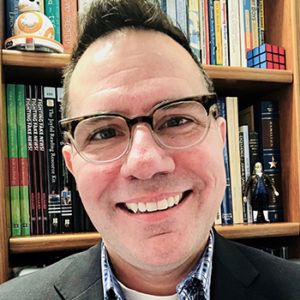
Brian Housand, Ph.D.
Differentiating for the Head and the Heart
Classroom Strategies
Come and explore the interconnectedness of the cognitive and affective domains as we delve into the hearts and minds of the gifted to uncover some of what makes them tick and think. Together we will identify the importance of not only differentiating to promote thinking, but also investigate how we can design learning experiences to develop feeling in our students. When it comes down to academic learning and social and emotional learning, it should not be an “Either, or”, instead it should be a “Yes, and!”.
Dr. Brian Housand, is the coordinator of the Academically or Intellectually Gifted program at University of North Carolina Wilmington. Dr. Housand earned a Ph.D. in educational psychology at the University of Connecticut with an emphasis in both gifted education and instructional technology. He served two terms on the National Association for Gifted Children’s Board of Directors as a Member-At-Large. Along with his wife Dr. Angela Housand and Dr. Joe Renzulli, he co-authored Using the Schoolwide Enrichment Model with Technology. He is also the author of Fighting Fake News! Teaching Critical Thinking and Media Literacy in a Digital Age. Brian has worked in education as a classroom teacher, a teacher of the gifted, and a university professor for over twenty years. As a speaker and consultant, he has presented in 40 states, Canada, Australia, South Korea, Kuwait, and Chilé. Brian is a lover of technology, Star Wars, all things Disney, video games, and fonts. He proudly identifies himself as a geek. You can learn more on his website at brianhousand.com and by following him on Twitter @brianhousand.
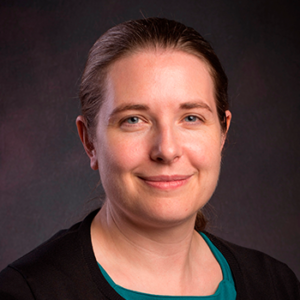
Jilly Darefsky
Differentiation and Flexible Strategies for Virtual and In-Person Classrooms
Classroom Strategies
In-person, hybrid, or virtual – explore classroom strategies that bring flexibility to your curriculum planning and provide differentiated opportunities for your students. Integrated strategies for social-emotional growth, academic support, and expanding 2e students’ strengths will be examined. Grounded in neuroscience, effective pedagogical practices will be practically applied so educators walk away with strategies that are immediately applicable to their daily practice.
Recognized as an Outstanding Teacher of Dyslexic Students, has dedicated her career to working with students with language-based learning differences. Having undertaken roles of director, secretary, and vice-president on the Board of the D.C. Capital Area Branch of the International Dyslexia Association, she now serves as a Board member of the Atlantic Seaboard Dyslexia Education Center. Ms. Darefsky earned a B.A., with honors, in English Literature with Psychology from the University of Surrey, a Diploma in Specific Learning Difficulties/Dyslexia from Hornsby International Dyslexia Centre and a Postgraduate Certificate in Education from Canterbury Christ Church University College. Furthermore, she holds a Master’s in Specific Learning Difficulties from Middlesex University. Currently, she is pursuing a Doctorate in Education with a specialization in Mind, Brain, and Teaching at Johns Hopkins University.
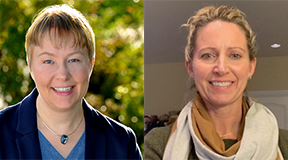
Austina De Bonte & Amity Butler
One School District’s Equity Journey, and How Distance Learning Actually Helped
Classroom Strategies
Northshore School District, 15 miles northeast of Seattle, has been on an equity journey for the past 5 years. Learn how this school district of 23,000 students invested in broad universal screening for its highly capable program, and identified 600% more English Language Learners, low-income students, and students with disabilities (twice exceptional) over the past 3 years. This year’s equity initiative is even more exciting – bringing accelerated math to qualified 4th and 5th graders in every elementary school. Hear the planning and implementation details for how this new accelerated math program actually works, and the surprising way that distance learning helped get this idea off the ground.
Austina De Bonte is the owner of Smart is not Easy, LLC, which provides consulting for school administrators, professional development for educators, and parent coaching. Since 2012, Austina has also served as the President of the Northwest Gifted Child Association (www.nwgca.org), the Washington State support and advocacy non-profit for families with gifted children. A dynamic and engaging presenter, Austina speaks regularly at conferences, as well as conducts parent education talks and professional development workshops for educators about the unique social and emotional development of highly capable (HiCap) or “gifted” children. She also works with school district teams to develop and fine-tune their HiCap program models, especially concerning equitable identification strategies. Austina’s signature style combines her experience as a parent and parent coach along with synthesized research, current district practices across Washington State, and cutting edge neuroscience. Contact Austina at austina@smartisnoteasy.com
Amity Butler serves as the Director of Accelerated Models and Programs for the Northshore School District. She oversees programs ranging from Title I, LAP and EL, to Highly Capable services for students. Prior to her work in the Northshore School District, she was a building principal for 10 years and a teacher and coach for 15 years with the Port Angeles School District. She earned her National Board Certification in 2000 and renewed it in 2010. She earned her bachelor’s and master’s degrees from the University of Puget Sound and her doctorate from Seattle University.
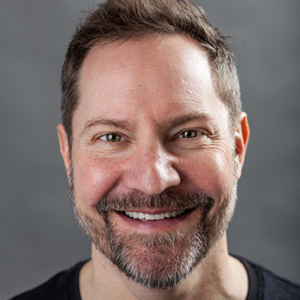
Seth Perler, M.Ed.
Supporting Struggling 2e Students with Executive Function
Classroom Strategies
In this session, you will learn:
- What is Executive Function
- How to know if your 2e child has EF challenges
- Why it’s essential for educators of 2e kids to understand it properly
- How educators sometimes unknowingly shame 2e kids when trying to help, and what to do about it
- How to help 2e students learn to regulate emotion, how to co-regulate and attune
- How to navigate the current educational uncertainty to support your students and their families
- Unconventional strategies to support your 2e students to be more successful in school and life
I’m Seth Perler and my life’s work is dedicated to helping kids overcome Executive Functioning challenges so they can have great futures, despite our outdated educational systems.
My mission: Give you (compassionate & proactive parents, educators and others who help kids) honest, practical and unconventional approaches to helping complicated, struggling students, without b.s. or misinformation. And teach the world about Executive Function, which is at the root of student struggles.
My vision: A day when we don’t need executive function coaches because education is wildly successful at empowering all students with everything they need to have happy, healthy and successful lives.
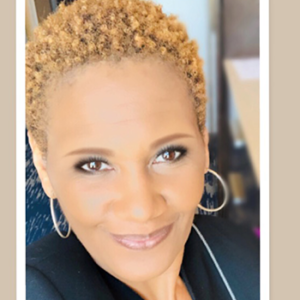
Kristina Collins, Ph.D., Ed.S.
“Gifted & ____”: Combating Victimization of Gifted Students with Other Exceptionalities
Cultural Diversity
A student is being bullied when he or she is exposed to deliberate and repeated acts of physical, emotional, or verbal abuse. It can be direct or indirect. All children that experience bullying are socially and emotionally affected, and this is especially true of gifted students who typically exhibit higher than normal intensities, sensitivities and stress of high expectations. In this session, the presenter(s) expand the discussion of victimization beyond peer-to-peer bullying to include institutional programming’ role in creating environments that foster this phenomenon for “gifted and …” students. Implications, accountability, and recommendations for gifted and talented education (GATE) educators and parents are offered.
Dr. Kristina Henry Collins is the current President (2020-2022) for SENG (Supporting Emotional Needs of the Gifted), and serves as a member-at-large member on the board of directors for NAGC ( National Association for Gifted Children). Dr. Collins is an Educational Psychologist (Ph.D., University of Georgia) with a specialty (Ed.S) in gifted and creative education. She is the core faculty for Talent Development at Texas State University, San Marcos. She has over 25 years of diverse leadership, teaching, and program development in K-12, post-secondary, military (USN), and community-based settings.
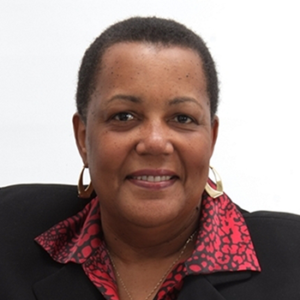
Joy Lawson Davis, Ed.D.
Nurturing the Invisible 3E Learner: Black, Gifted & Twice-Exceptional
Cultural Diversity
Across the literature regarding twice exceptional learners, very little work has focused on the needs of underserved gifted learners who may also be twice exceptional. This session will focus on what we know about these remarkable learners and provide strategies to support their full development
Dr. Davis is a Gifted Education scholar who has focused her career on addressing the needs of diverse gifted learners. An award-winning practitioner, author of numerous publications, professional development expert, and member of several Advisory Boards, Dr. Davis has distinguished herself to become one of the nation’s leading voices of advocacy working to dismantle systemic barriers preventing the fair and equitable service to gifted learners from culturally diverse backgrounds.
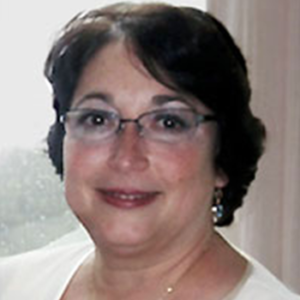
Wendy Behrens, M.A., Ed.D.
Who Are the Gifted English Language Learners and How Can We Find Them?
Cultural Diversity
Despite being the fastest growing population in the United States, English language learners (EL) remain underrepresented in gifted and talented programs, lagging behind all other underserved populations. How can EL teachers, classroom and gifted program coordinators and counselors collaborate with each other to identify and support English language learners for inclusion in accelerated offerings?
Wendy A. Behrens is the Gifted and Talented Education Specialist for the Minnesota Department of Education, where she advises educators, administrators, parents, and policymakers. She presents frequently on comprehensive service design, acceleration, identification of under-served populations, and policies that support highly able learners to national and international audiences. B
ehrens has received the National Association for Gifted Children (NAGC) Presidential Award, and has held leadership roles in the Council of State Directors of Programs for the Gifted, The World Council on Gifted, and the Council for Exceptional Children – The Association for the Gifted (CEC-TAG). She serves on several national advisory groups and is the author of several books and book chapters on educational issues. Her most recent publication, Understanding Twice-Exceptional Learners: Connecting Research to Practice, will be released in November of 2020 by Prufrock Academic Press.
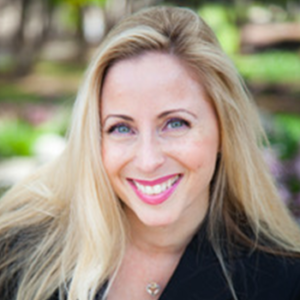
Nicole Tetreault, Ph.D.
A Lens into Neurodiversity– In and Out of the Classroom
Clinical Considerations
Neurodiversity and twice-exceptionality go beyond learning in the classroom, neurodiversity is a way of being and navigating in the world. The journey begins from birth and continues through life. Twice-exceptional children express great gifts and challenges where their efforts do not match their imagination and original ideas. Often these children are asynchronous and test all over the map, leaving them deflated, anxious, and demotivated. Understanding the brain processing and nontraditional learning styles of twice-exceptional students opens the development of creative teaching strategies and solutions. With advancements in neuroscience and psychology research, we can design education specific to the individual while meeting the needs of the whole person. Join this session to understand ways to activate and encourage positive neural pathways and mindful techniques to nurture a divergent thinker and mind. Guide your twice-exceptional student to thrive with compassion and understanding. Teach them to be liberated and empowered along their life journey.
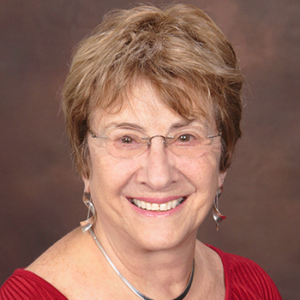
Bev Nerenberg
A Revolutionary Technique for Stress-free and Pain-free Living
Clinical Considerations
Emotional Freedom Techniques (EFT “Tapping”) draws on the ancient wisdom of Eastern medicine’s acupuncture (but without needles) and blends it with cutting-edge insights of modern Western psychology. The result is a self-administered energy healing technique that helps relieve and/or eliminate negative emotions and physical aches and pains, often in minutes. By “tapping” on the body’s acupressure points, people quickly dissolve the energetic blocks that have been hindering their physical or emotional recovery and well-being. Tapping is easy to learn, quick, effective, non-invasive, surprising and free!
Bev Nerenberg was a Senior Vice President of Operations for a regional multi-million dollar, Inc. 500 (#144) computer distribution company and then a Director of Operations for a chain of Montessori schools. She is an experienced business leader, familiar with most of the inherent challenges and solutions. Everything shifted for her in 2008. That is when she discovered Emotional Freedom Techniques from a DVD called The Tapping Solution. It changed the direction of her life. From her first experience with EFT – disappearing her lifelong acrophobia (fear of heights), to the relief she got from anger, jealousy, physical pains and worry, she knew she wanted to share this modality with as many people as she could. Bev then devoted herself to learning all she could about Emotional Freedom Techniques by reading, taking courses, practicing, practicing, practicing and continuing on to become Certified as an EFT Practitioner and started Wellness At Your Fingertips. Bev does this work because of her love of teaching and empowering people with this life-altering tool. She is able to help them overcome stress, pain and illness and have the opportunity to become healthier, happier, more successful, and in general, live their best life possible.
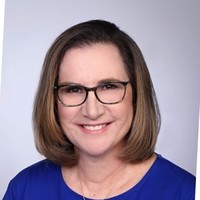
Roby Marcou, M.D.
A Developmental and Behavioral Pediatrician's Approach to The 2E Child and Adolescent
Clinical Considerations
Developmental and Behavioral Pediatricians provide wholistic care which focuses on understanding each patient’s unique profile and managing the social, behavioral, emotional, learning and medical impacts of that profile. Care reflects on the developmental pathways and focuses on individualized, anticipatory management to ensure we strengthen strengths and remediate areas of need. This session will focus on some of the themes of DBPeds and on understanding how this can be important for a 2E child or adolescent.
Dr. Roby Marcou has been working as a Developmental-Behavioral Pediatrician for nearly 30 years, practicing in Alaska, Texas, Indonesia and Singapore as well as throughout East and South-East Asia. She was educated at MIT, UPenn School of Medicine, Stanford University Hospitals and Boston Children’s Hospital. In addition to her clinical practice, she has been on the faculty of the National University of Singapore , has presented at conferences for teachers and parents throughout Asia and has conducted audits of support services programs within a number of International Schools in Asia. She works extensively with schools to support her patients and to support educators and for 6 years was fortunate to learn more about learning as a Middle School teacher at Jakarta Intercultural School. Dr. Marcou currently works in Singapore, throughout Asia and at the Chesapeake Center in Bethesda, Maryland
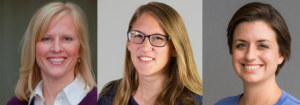
Megan Foley Nicpon, Ph.D., Katherine Schabilion, Ph.D., and Alissa Doobay, Ph.D.
Twice-Exceptionality: The Intersection of Autism and Giftedness
Clinical Considerations
Our knowledge of Autism Spectrum Disorder (ASD) has grown exponentially in recent years, but we are just beginning to understand what it means to be intellectually gifted and have ASD. This is a critical first step in evaluating, intervening, and supporting this exceptional population. High ability students with ASD show incredible intra-individual variability in skills. They often display areas of profound talent, and at the same time, they may experience substantial challenges that, without support, may severely limit major life functions. Common areas of challenge include executive functioning, interpersonal skills, anxiety, cognitive and behavioral rigidity, differences in sensory processing, and adaptive functioning. In this presentation, attendees will learn about the characteristics and needs of high ability students with ASD based on the existing literature and the presenters’ extensive clinical experience, and practical strategies for meeting the unique needs of these students at home and school will be provided.
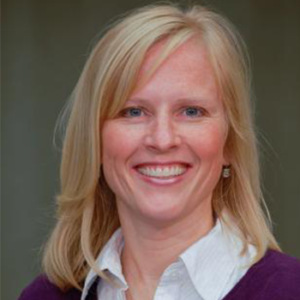 Megan Foley-Nicpon is a professor in Counseling Psychology and Department Executive Officer for Psychological and Quantitative Foundations at the University of Iowa. She also serves as the Associate Director for Research and Clinic at the Belin-Blank Center for Gifted Education and Talent Development. Dr. Foley-Nicpon is a licensed psychologist whose research and clinical interests include assessment and intervention with high ability students with disabilities, and the social and emotional development of talented and diverse students. She is an Associate Editor for the APA Handbook of Giftedness and Talent, andhas written over 50 referred articles and book chapters and given over 100 presentations at international, national, and state professional meetings in the areas of gifted, counseling psychology, and twice-exceptionality.
Megan Foley-Nicpon is a professor in Counseling Psychology and Department Executive Officer for Psychological and Quantitative Foundations at the University of Iowa. She also serves as the Associate Director for Research and Clinic at the Belin-Blank Center for Gifted Education and Talent Development. Dr. Foley-Nicpon is a licensed psychologist whose research and clinical interests include assessment and intervention with high ability students with disabilities, and the social and emotional development of talented and diverse students. She is an Associate Editor for the APA Handbook of Giftedness and Talent, andhas written over 50 referred articles and book chapters and given over 100 presentations at international, national, and state professional meetings in the areas of gifted, counseling psychology, and twice-exceptionality.
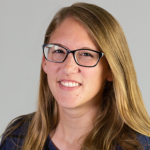 Dr. Katie Schabilion received her PhD in School Psychology from the University of Iowa in 2020. She completed her predoctoral internship at Avondale Elementary School District in Avondale, Arizona, and she is completing postdoctoral training at the Belin-Blank Center for Gifted Education and Talent Development. Her clinical and research interests include twice-exceptionality, gifted education, and school-based advocacy for high ability and 2e students.
Dr. Katie Schabilion received her PhD in School Psychology from the University of Iowa in 2020. She completed her predoctoral internship at Avondale Elementary School District in Avondale, Arizona, and she is completing postdoctoral training at the Belin-Blank Center for Gifted Education and Talent Development. Her clinical and research interests include twice-exceptionality, gifted education, and school-based advocacy for high ability and 2e students.
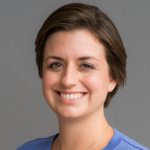 Dr. Alissa Doobay received her PhD in Counseling Psychology from The University of Iowa in 2010. She is currently a Licensed Psychologist and Supervisor of Psychological Services at the Belin-Blank Center for Gifted Education and Talent Development at The University of Iowa where she provides clinical assessment, therapy, and consultation services. Her clinical expertise is in the area of twice-exceptionality (individuals who are high ability or “gifted” and have a disability), particularly students who have Autism Spectrum Disorder, Learning Disorders, ADHD, anxiety, and mood disorders.
Dr. Alissa Doobay received her PhD in Counseling Psychology from The University of Iowa in 2010. She is currently a Licensed Psychologist and Supervisor of Psychological Services at the Belin-Blank Center for Gifted Education and Talent Development at The University of Iowa where she provides clinical assessment, therapy, and consultation services. Her clinical expertise is in the area of twice-exceptionality (individuals who are high ability or “gifted” and have a disability), particularly students who have Autism Spectrum Disorder, Learning Disorders, ADHD, anxiety, and mood disorders.
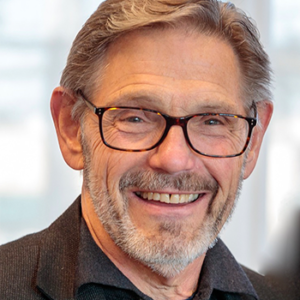
Jerome Schultz, Ph.D.
The Impact of Stress and Anxiety on 2E Kids: What to know: What to DO!
Clinical Considerations
Children and adolescents who are gifted and talented and also have conditions that can affect learning and behavior (such as LD, ADHD, High Functioning Autism) are particularly at risk for stress-related disorders and reactions. Neuroscience explains the problem and gives us the knowledge we need to turn this situation around. This session will explain why Twice Exceptional (2E) children and adolescents may have a lower threshold for stress due to their repeated experiences with failure. Participants will leave with several simple but powerful strategies that have been used to break the pattern of fear, avoidance and escape, and help so many kids experience the joy of success.
Jerome Schultz, Ph.D. is a former middle school teacher, a parent, and a Clinical Neuropsychologist on the faculty at Harvard Medical School in the Department of Psychiatry. He currently serves as an international consultant on issues related to the neuropsychology and education students with special needs, including Twice Exceptional (2E) kids. His recent research and writing focuses on the impact of stress and anxiety on students of all ages. He is a content expert and frequent contributor at www.Understood.org and at ADDitudemag.com. A a much sought after presenter at schools and conferences, he also provides content for www.impactadhd.com. His book, called Nowhere to Hide: Why Kids with ADHD and LD Hate School and What We Can Do About It, examines the role of stress in learning, and has served as a practical guide for families and schools across the globe.
The Exhibitor Hall







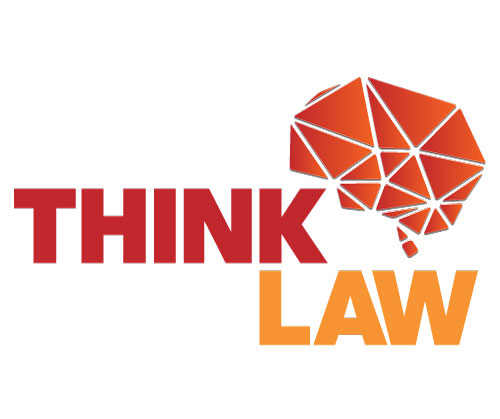

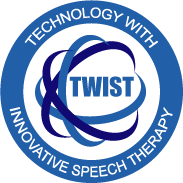
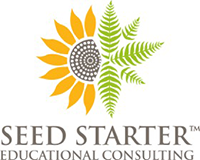
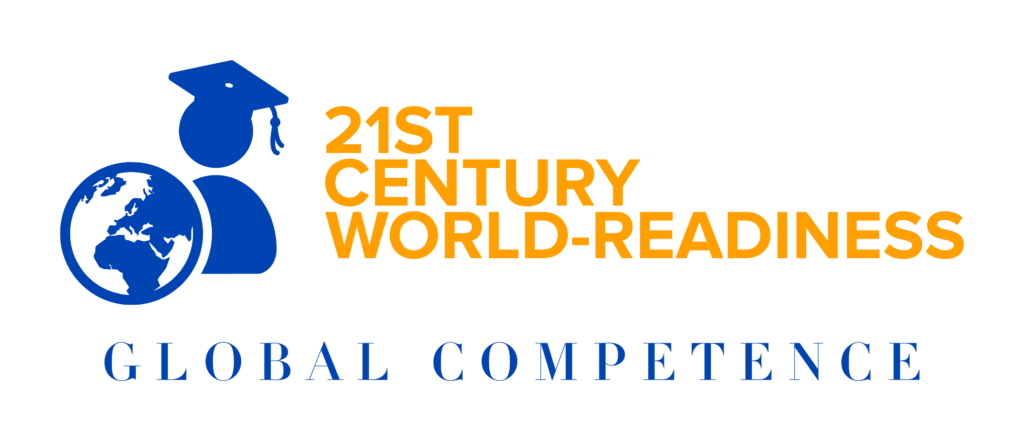
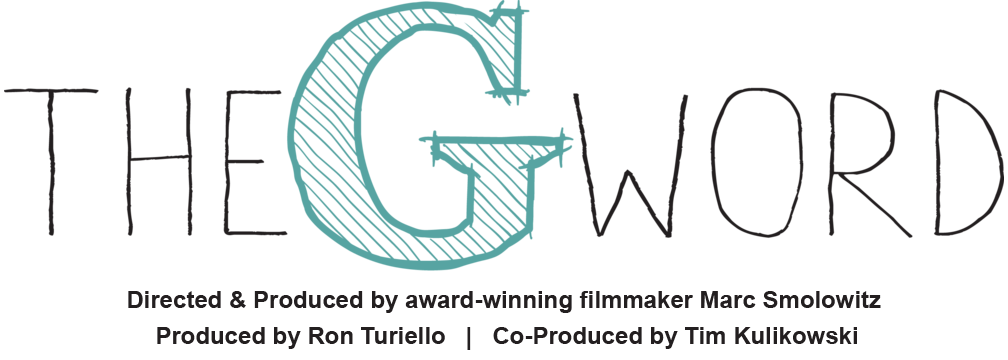
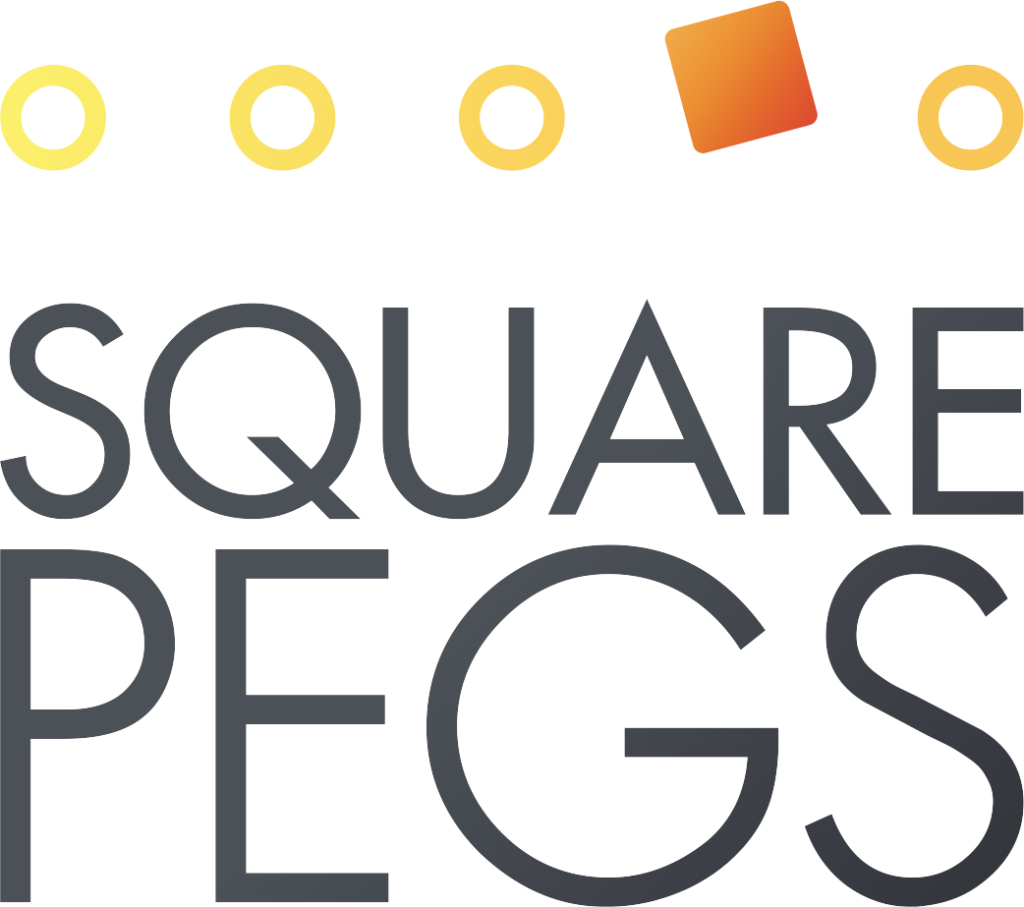


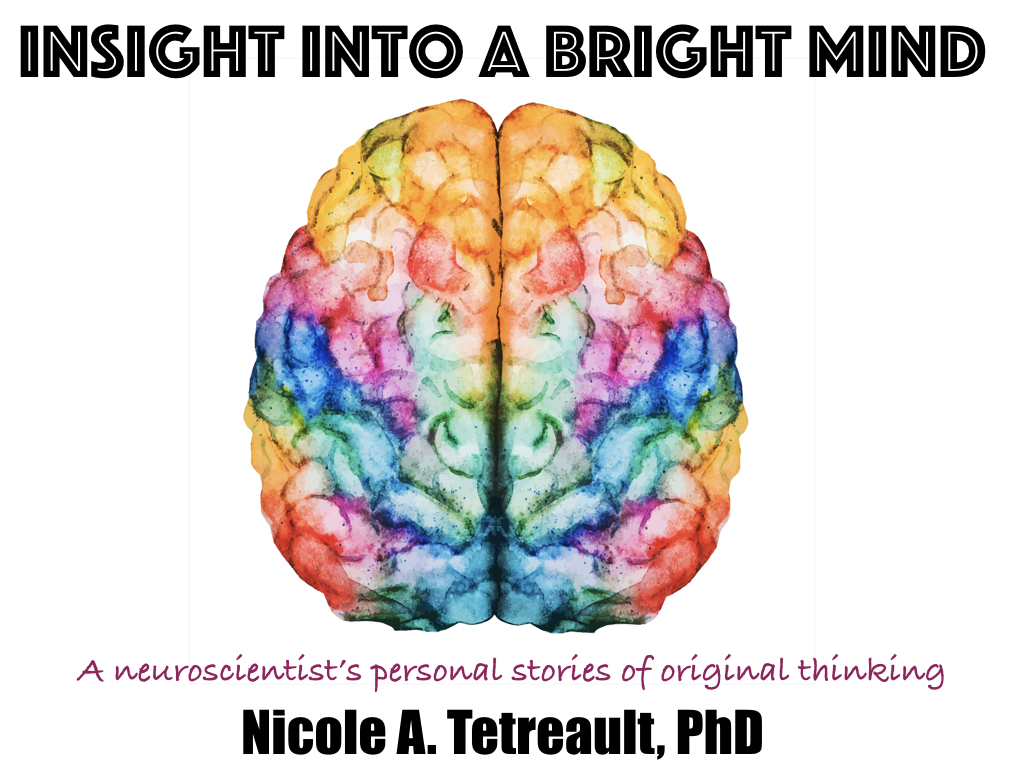



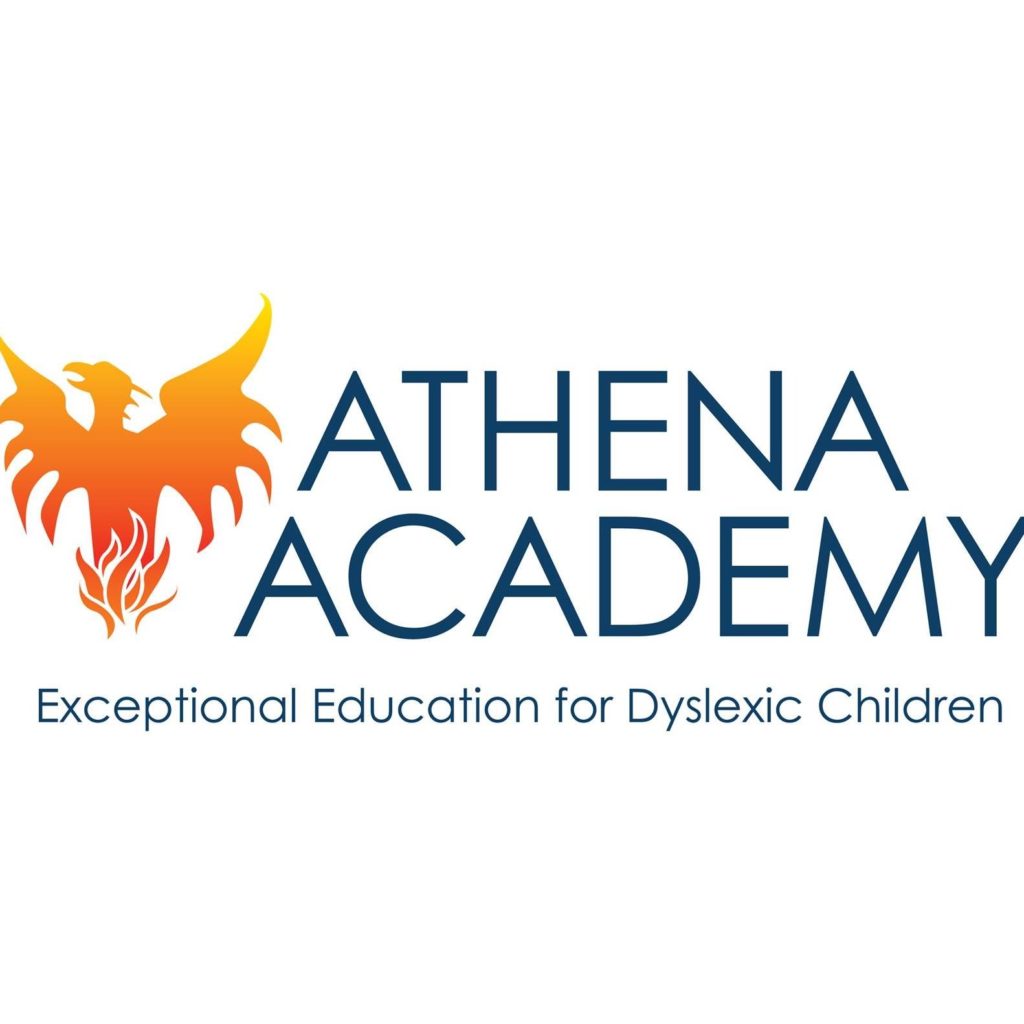



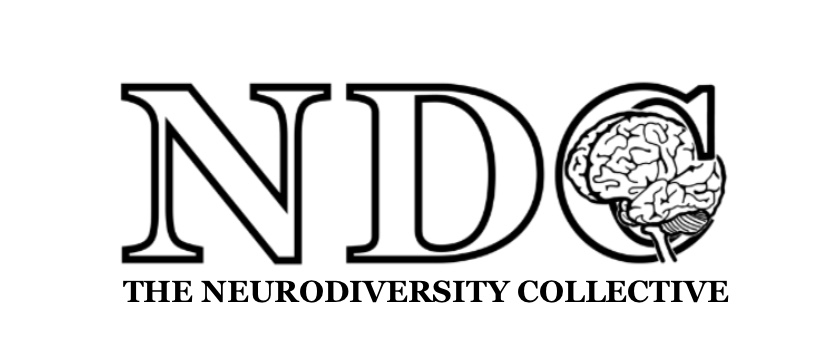


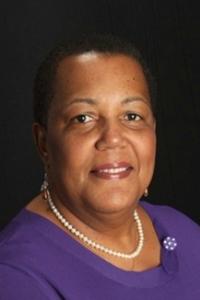
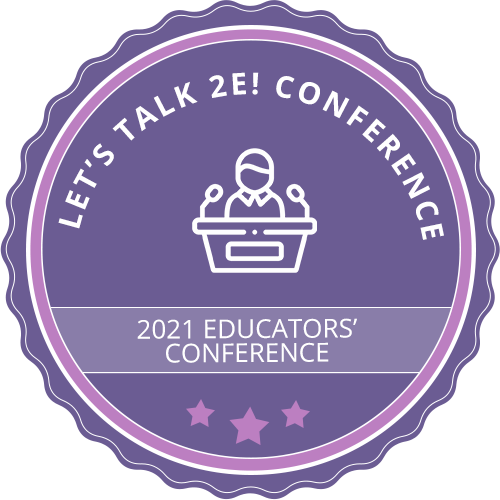
Get Immediate Access
Don't miss out! Register now.
Register by selecting an option below:
If you’d like to register a group of people, please click here to complete the group registration spreadsheet.
* Participants are eligible to receive a Certificate documenting Contact Hours issued by the University of Connecticut (UCONN). It is the participant’s responsibility to determine if their home state/agency/professional association recognizes Contact Hours. Continuing Education Units (CEUs) are not offered by the University of Connecticut.
**Read the Exhibitor Booth Prize Rules here.
